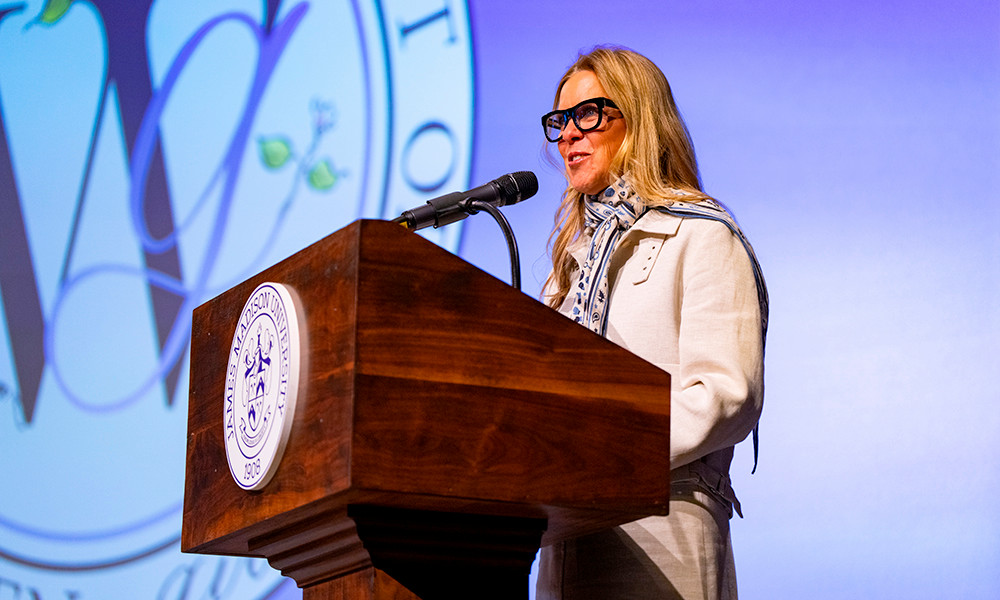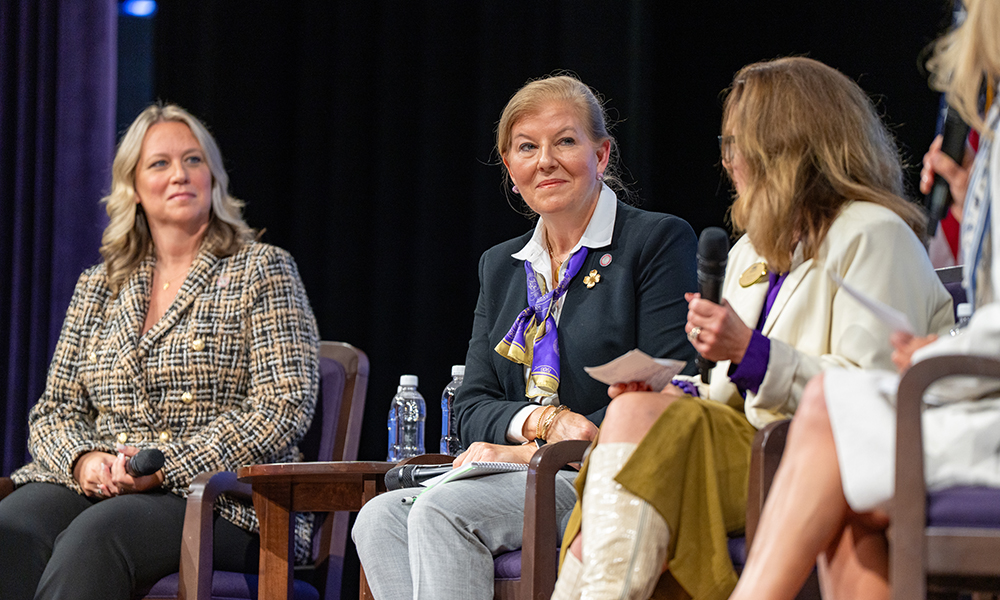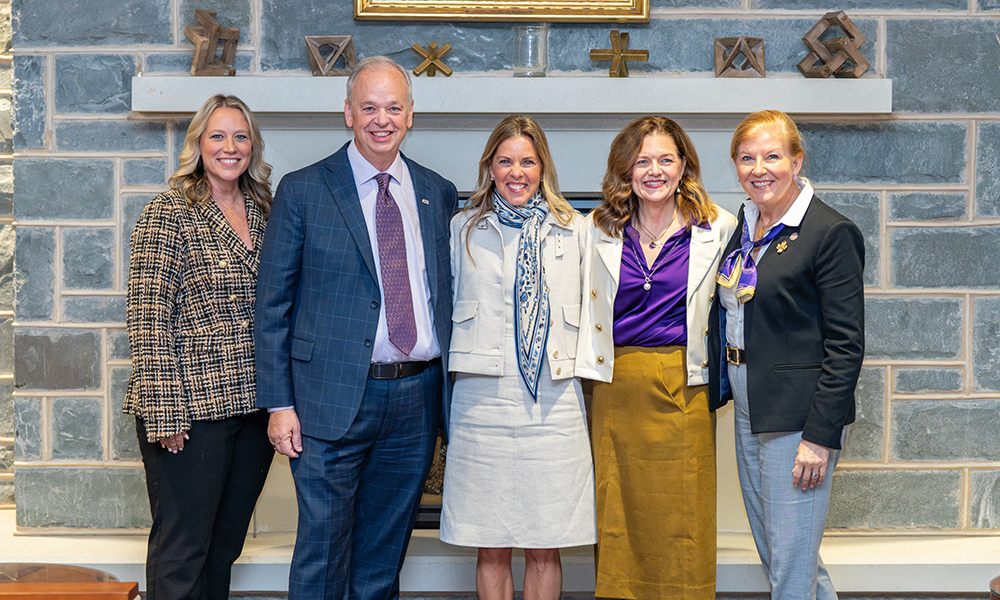Strengthening the commonwealth
Virginia’s first lady leads fireside chat on campus
JMU News
SUMMARY: Women leaders in Virginia government gathered at JMU to discuss pressing issues that face students in higher learning.
At a Wednesday evening fireside chat in Wilson Hall, First Lady of Virginia Suzanne Youngkin led a discussion about various issues facing students in higher education. Hosted and livestreamed by the James Madison Center for Civic Engagement, the event, “Strengthen the Spirit of Women and Girls,” welcomed students, faculty and staff to join the conversation.
Joined by Kim Schmidt, wife of President James C. Schmidt and first lady of JMU; Janet Kelly, Virginia secretary of health and human services; and Aimee Guidera, Virginia secretary of education, Youngkin asked a series of questions to discover how issues affecting Virginia residents are also impacting Dukes.
On the topic of cell phone-free education, Guidera highlighted how Virginia Gov. Glenn Youngkin’s administration has examined the data and acted on it. Every public school district in the commonwealth except one has now adopted a cell phone-free policy. The goal is to increase students’ focus in class and increase communication in schools.
“If you want to make lasting change, three things need to happen,” Guidera said. “One, there needs to be an awareness of a need to change. Two, there needs to be a desire to change. Three, there needs to be an understanding of how you change — what do you do differently?”

On the subject of mental health on college campuses, Schmidt, a licensed therapist, said coming out of the COVID-19 pandemic, studies have shown modest improvement, which she attributes to students being together again and interacting with each other.
“We are really relational beings,” Schmidt said. “We are meant to interact, we’re meant to have leisure activities together, we’re meant to talk about tough things. And when we don’t get those experiences, our mental health suffers. Sometimes it feels uncomfortable, because we’ve gotten out of practice. But we have to give each other the grace and the space to find that comfort again. And I hope to lead that effort [at JMU].”
|
“I’m happy to report that in 2025 we have not lost a single person in our correctional system to fentanyl poisoning.” — Suzanne Youngkin, first lady of Virginia |
Youngkin credited JMU for adopting the Okanagan Charter, signaling the university’s commitment to foster health and well-being across campus.
Early in her husband’s term as governor, Youngkin started the fentanyl-awareness campaign, It Only Takes One, and the Fentanyl Families Ambassador Program for families who have suffered from the fentanyl epidemic. In August, the program launched on college campuses throughout Virginia. Through these programs, hundreds of thousands of Virginians have completed training to administer naloxone, an opioid-overdose antidote that comes in the form of a nasal spray and can prevent death. Kelly said the Youngkin administration has reduced fentanyl overdose deaths by 59% over the past four years.
|
“We are really relational beings. We are meant to interact, we’re meant to have leisure activities together, we’re meant to talk about tough things.” — Kim Schmidt, first lady of JMU |
Recalling the tragic story of a family friend and college senior who lost his life to fentanyl poisoning, Youngkin said she and her husband have devoted themselves to doing what they can to address the fentanyl crisis. “We’ve made great progress,” she said, “even [on] the little things that should make you feel so good about what’s happening in our state.”
As she travels around Virginia and continues to educate herself on the subject,Youngkin has seen how pervasive the fentanyl crisis is and how many communities are impacted.
“One of the populations being disproportionately affected by this are those incarcerated — many with substance-abuse issues,” Youngkin said. “So we went into our prisons and jails and raised up our peer counselors, and we put programs in our correctional systems and probationary systems to make sure those persons were getting the care they needed. I’m happy to report that in 2025 we have not lost a single person in our correctional system to fentanyl poisoning.”
Guidera praised the James Madison Center for Civic Engagement for leading the charge in fostering civil discourse, and helping people have better conversations across political and cultural divides.
Watch the full event here.

